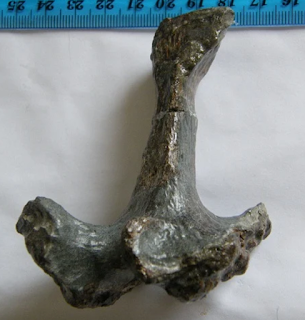The Ministry of Education is also ramping up its Local Curriculum PLD programme with a few PDFs in the last email sent through to us. Although IPL (the people I work with at the University of Waikato) are not part of the PLD being offered, we can of course still help schools with their thinking as well as exploring this as a part of the science PLD I can offer.
It's really got me thinking about a couple of aspects that I know are important in science but I spend a lot of time at the other end of the pool, supporting teachers in exploring the pedagogy of the nature of science and the science capabilities, so don't get to try out some of these deeper ideas. As I've thought more about this, I've started thinking Why aren't I playing with these ideas? Why have I decided that they really should be introduced later on rather than right at the beginning? So I decided to get going!
The first idea is Taking Action. Some science activities probably won't head down this track and I think that can be okay, however, we do need some science units that have opportunities for students to reflect on taking action, and perhaps even take action. It might not even be them that's taking action! I'm always intrigued that we have fossil beds in Aotearoa New Zealand that are kept secret. This includes fossil records of footsteps. We have very rare plants and animals that the location is not shared. These are ways people take action. Other ways are the current 'no plastic bags' movement that is growing across the country. Besides this, are there chances for students to, at the least, discuss ways they (or society) could take action? If I'm doing something around plants, I'll be doing some gathering and interpreting data as we observe different plants. I might do some planting (probably inside, out of the sun, at the moment!) and then gathering data of the plants growing, comparing to others' plant growth. I'll probably do some diagrams, cross-sections to focus on interpreting representations as well. But taking action? Maybe I could look at particular weeds issues -like gorse, which can be prevalent across the country. How are farmers and scientists taking action? What could we do? If I lived near native bush, I might get the students to explore the kauri die-back problem afflicting these mighty trees. How is society responding? How can we help? Could it happen locally?
 |
| Probable Plesiosaur vertebra: https://sites.google.com/site/hawkesbayfossils/home |
With my plants unit, what's special about our own region? Are there any specialist people or companies around? Any rare plants? If I was in Rotorua, I might get the children inquiring about the Redwoods -I don't think we have any other forests of redwoods! If I was in the Opotiki region, I might get the children supporting beach sand-dune planting.
 |
| Me and a redwood... or should that be 'A redwood and I'? |
So how am I taking action? I'm going to add a couple of new bits to my unit plans -Local Community and Taking Action. Sometimes there may not be anything to add here but with a bit more digging there might be! I was just thinking of an example that wouldn't have much to add here and thought about my ramps experiments but then wondered about 'Could there be local 'blackspots' where there are a lot of accidents? Could we use some science to wonder why?'!
Have fun and keep sciencing on! As always, I welcome your comments and questions -even if you disagree!
Paul
Thought provoking as always Paul. Thinking about ramps, are there places that don't provide disabled access? What's a safe gradient for a person in a wheelchair?
ReplyDelete7 - 8 degrees is the norm I believe... Somewhat useless fact I think I know?
DeleteI love useless facts -that's how you win "The Chase"! I think it could be really interesting to investigate degrees for wheelchair access -who decided the right amount of degrees? Another one is the camber of the road...
DeleteI love doing science with the kids, that results in them taking some positive action. Here at Kaitieke, we have a big ongoing project -"The Wilderness", where we are restoring a 2 acre area back to native bush. But I think, lots of what we do in science can come from noticing a problem and working towards a solution (as you say Paul, even if that solution is one that would need to be implemented by others.)
ReplyDeleteGreat thinking Debbie and I think you've hit the nail on the head. Science could be considered as being about asking questions but just as relevant is the need for investigation and answers.
ReplyDelete